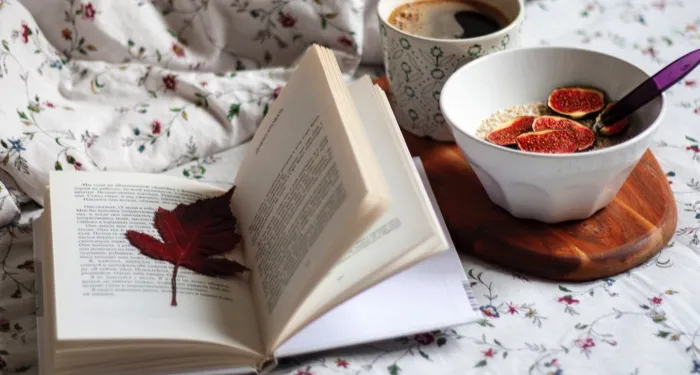
Grand Hotel [1929/2016] – ★★★★★
Like Vera Caspary’s Laura and Luigi Bartolini’s Bicycle Thieves, Grand Hotel is yet another novel that is likely best known as its ecranisation – the 1932 Oscar-winning film Grand Hotel, starring Greta Garbo, John Barrymore and Joan Crawford. And, indeed, the story is cinematic. Austria-born author Vicki Baum puts at its centre one of the most intriguing tourism inventions of the late nineteenth century – a grand hotel that, in its heyday, was the pinnacle of travelling luxury, providing all kinds of exclusive comforts for its rich clientele under one roof, creating “a home away from home”, and catering for each of their guests’ whims, rather than passively accepting them into the accommodation. Into this already intriguing institution, Baum puts the most diverse characters, from one capricious aging ballerina to a lowly bookkeeper suffering from an incurable illness who just so happens to find himself amidst all the luxury thanks to his life savings. Together, this cast of curious characters presents a microcosm of the Berlin society of the mid-to-late 1920s, a roller-coaster period of changes characterised by the questioning of moral norms and the gender roles shift. By juggling her colourful characters and their situations so skilfully in the novel, Baum delivers one of a kind, part tragic part comic exposé of lives lived.
So, there are in the hotel: Madam Grusinskaya, a famous ballerina, but already “past her prime” whose tickets no longer sell out; Dr. Otternschlag, a lonely, stuck-in-the-past doctor who was facially disfigured in World War I; Otto Kriengelein, a shabby, terminally ill bookkeeper from provinces, feeling out of place in this posh hotel, but who is determined to “seize one hour of crowded life before he died”; and businessman Preysing, who is in the hotel to conduct business. All of them, in one way or another, represent that segment of society and its ideals that the world has already moved on from. In some way, Grand Hotel is like a time citadel, where people are either stuck in time (Dr. Otternschlag) or want time to stop (Grusinskaya, Kriengelein). In particular, there is a vivid portrayal of Grusinskaya, an increasingly lonely, desperate woman of much culture and intelligence who no longer expects public adoration, but still craves love. Her prototype is everywhere in American fiction, too, see Sunset Boulevard [1950] and A Streetcar Named Desire [1947]. “No rest, no leisure, never a pause. And then, fame always brings loneliness. Success is as ice-cold and as lonely as the North Pole,” thinks Grusinskaya, a character who was actually modelled after Russian ballerina Anna Pavlova.
And, then, there is businessman and family man Preysing. Successful, but coming from provinces and slowly losing his steam in the competitive business world, he cannot make heads or tails of the new ways of doing business. Baum writes: “He offered the honest terms that a sound concern and an honest man had to offer. But that was not what people wanted nowadays. They wanted their hypothetical arrangements, their wild rumors, their manipulated booms with nothing behind any of it but hot air.” But, even Preysing will crumble under pressing times, turning from honesty to a swindle.
Fresh ideas are in the air, exemplified by two other guests of the hotel – young and dashing Baron Gaigern and beautiful and stylish struggling secretary Flämmchen. These two are important to the story because they are the “disruptors” of the previous mode of life, representing the new society that Baum contrasts with the old one. Gaigern is a handsome, but talentless and thieving young man who has already cracked the code of the new German society – it no longer has time to probe people’s moral stances or nobility roots (even though Gaigern is a Baron, he is already “disgraced”). Instead, the society falls for slick personal presentation, dazzling entrances and exaggerated rhetoric. On the other hand, Flämmchen is Baum’s way to showcase the rise of the “New Woman” in German society in the mid-1920s. She was fiercely independent, at times sported short hair, smoked in public, and, as in the case with Flämmchen in the story, had no shame in bragging about her naked photo-shoots and desires to be in pictures, or putting herself in compromising arrangements.
“Yes, but what’s your notion of life?”… “Does life even exist as you imagine it? The real thing is always going on somewhere else. When you’re young you think it will come later. Later on you think it was earlier. When you are here, you think it is there—in India, in America, on Popocatepetl or somewhere. But when you get there, you find that life has doubled back and is quietly waiting here, here in the very place you ran away from. It is the same with life as it is with the butterfly collector and the swallowtail. As you see it flying away, it is wonderful. But as soon as it is caught, the colors are gone and the wings bashed.” Baum/Creighton
At the heart of Baum’s story are the classes, their struggles, the erosion of class barriers, the “fall” of nobility and the rise of the cosmopolitan elite not tied to hereditary prestige or wealth. Bookkeeper Otto Kringelein gets his luxurious room in the hotel through many trials, and figuratively moves up a class overnight. This jump also echoes the changing German society, willing to welcome outsiders with enough money because the priority in every hard-pressed society becomes money and not one’s origin. In Berlin of 1925, traditions and rules could crumble overnight as titles and family prestige gave way to simple people with acquired wealth. Kringelein starts to rub shoulders with the wealthy for the very first time in his life, and Baum’s portrayal of this comical personage is full of curiosity, sympathy and emotional involvement. Dr. Otternschlag and Baron Gaigern show Kringelein the ropes in the new-to-him city, and he has his exciting adventure in Berlin. “For, long or short, Life is what you put into it. Two full days may be longer than forty empty years”.
 Translated from the German by Basil Creighton, with revisions by Margot Bettauer Dembo.
Translated from the German by Basil Creighton, with revisions by Margot Bettauer Dembo.In this story, there is bite and repose, excitement and contemplation. Part of the pleasure of reading Grand Hotel is that Baum is so invested in each of her characters. They rise under her pen not as simple caricatures, as is so common within the satirical genre, but as real, even if slightly eccentric, people who possess their own emotions, thoughts, histories, experiences, convictions, memories and regrets. Her skill in drawing us into the world of each with so limited a space is admirable.
Joy and sorrow collide in this story, as do wealth and poverty, age and youth, love and hatred, and optimism and pessimism. The hotel’s important business meetings, where “many a deal was rigged which afterwards shareholders had to make the best of”, take place next door to lovers’ secret rendezvous that give way to lifelong realisations. Regarding the latter, Baum dances around sexual relations in her prose. Nothing explicit is said, but parts of the novel are full of characters’ erotic longings. As each character, love has different shades in the novel, from casual flirtations and fleeting sexual tensions to otherworldly feelings of selfless “true love”: “their senses shared a mutual secret. He experienced something that has no name, not even the name of love, a homecoming after long homesickness”. And to put a cherry on her masterpiece of a literary cake, Baum wraps her satire in the excitement of a crescendoing thriller with the pathos here and there now reminiscent of Renoir’s The Rules of the Game [1939], which also has the theme of the most “lovable” person (virile male) in the story being “sacrificed” on the altar of bourgeois propriety.
🛎️ The intimacy of Grand Hotel, so chic and yet self-sufficient and all-encompassing, like an exclusive member’s club, gives this novel a warm, cosy feel, and Baum’s writing is enchanting: economical, yet deep, and her story – lightly satirical, and yet capable of penetrating the psyche of each of the characters in turn, people who are torn between ghastly realities and flights of fancy. Grand Hotel is a beautiful novel full of surprising discoveries.
<< Buy Grand Hotel (affiliate link) >>
This post was written as part of the Women in Translation Month initiative.



















 English (US) ·
English (US) ·